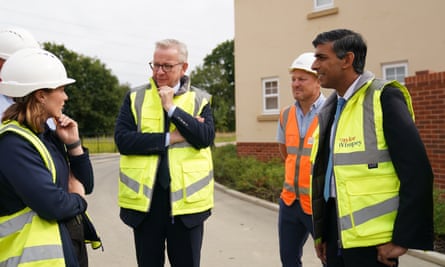Every review of Britain 2023 says the same. The country is not being well run. From policing to care homes, from postal services to sewage spills, from youth clubs to potholes, everywhere is failure. Small wonder just 20% of Britons now have any faith in their national politicians, one of the lowest figures in a western democracy.
Nowhere is this decline more evident than in local government. It is going bust. Birmingham, Nottingham, Croydon and four other councils in England have issued section 114 notices since 2020, indicating that their expenditure will exceed income. According to the Local Government Association (LGA), in the coming year, one in five councils expect to fail financially. Commissioners have already been sent to Woking and Slough, effectively suspending their local democracy.
In most of what they do, councils now act as agents of Whitehall instruction – as with children in need, care of elderly people and dispensing housing benefit. Yet the money to do this has been butchered in 13 years of austerity, with a 40% real-terms cut in central grants. Money for anything considered “discretionary” – public libraries, sports facilities, local colleges, the arts, the stuff of community life – has evaporated. The LGA estimates a cash shortfall of £4bn over the current two-year period. This is a fraction of what successive governments have spent on that white elephant, HS2. Rishi Sunak won’t give Birmingham another penny but he will happily speed Brummies to the bright lights of London.
This week, the new head of the Office for Local Government, Lord Morse, blamed much of the trouble on councils’ “failures in management or failures in governance”. Some, such as Croydon, have reportedly mishandled their assets, many in a desperate attempt to earn revenue from property. Many have become such dispiriting places to work that able councillors and staff have disappeared. But for a central quango to blame the impending crisis on local recklessness is grossly unfair. I would rather trust an average local council to handle defence procurement or transport investment than leave it to the Treasury just now. As it is, the only source of new money for many councils is traffic fines. A desperate Manchester council reveals it has raised £10m in penalties from just one bus lane in less than two years, while the City of London squeezed £8m from a single junction outside the Bank of England in one year.

The instinct of central government is to “nationalise” what it sees as local failure. Since the 1980s this has happened over secondary and further education and the capping of local taxation. The latest battle has been over planning. Changes last year by the levelling up secretary, Michael Gove, to the housebuilding regime have on the whole been respectful of local discretion. But two weeks ago he turned turtle and lambasted councils that did not do as he wanted for being nimbys. If they did not plan for more houses within a year, he would overrule them and bring local planning decisions under the control of Whitehall. Since 86% of planning applications are approved locally and without delay, this kneejerk centralisation would be bureaucratic madness.
Labour is no different. Keir Starmer said in his last conference speech that he wants to “bulldoze” through local planning laws. He sees local councils as no more than Whitehall housebuilding agencies. Like Gove, he wants to see 300,000 new houses built and does not want local people or their representatives getting in the way. This centralisation of town and country planning will make Rwanda seem like a picnic. Every planning decision will become a battle in the courts. Whitehall cannot possibly ordain the fate of every acre of land in England.
At root is the future of local democracy. British politics is rotting from the bottom up. Britons used to run the majority of public services through locally elected bodies, as do most democracies in Europe. The removal of the big three – health, education and housing – has not sent British standards shooting up but on the whole into decline. Regulation, bureaucracy and targetry have gradually strangled frontline management.
Across Europe, most locally elected bodies have power, resources and the status to match. It is considered an honour to serve on them. In Germany, the Low Countries and Scandinavia, they raise their own taxes, build houses, run schools and clinics, and maintain churches and historic buildings. They do few of these things in Britain. It is a wonder people still bother to stand as councillors.
Local government contrived to keep its show on the road during David Cameron and George Osborne’s austerity blitz of the 2010s. Some councils made mistakes. But now push has come to shove. The biggest local sector, social care outside the NHS, has been savaged by cuts and is stumbling as a debilitated state agency. Chronically short of 150,000 staff, its inability to handle hospital discharges has sorely damaged Whitehall’s pet service, the NHS.
Now it is discretionary services that are for the chop. Not a week passes without a local library, swimming pool or day centre being declared unnecessary. The freedom of local people, through their votes and their taxes, to sustain the fabric of community life is curtailed by a national political culture that simply does not care. Attacking localism for the faults of centralism is a lie, one that will do nothing but further harm.
-
Simon Jenkins is a Guardian columnist
Bagikan Berita Ini














0 Response to "British politics is rotting from the bottom up: pity our crisis-hit local councils - The Guardian"
Post a Comment